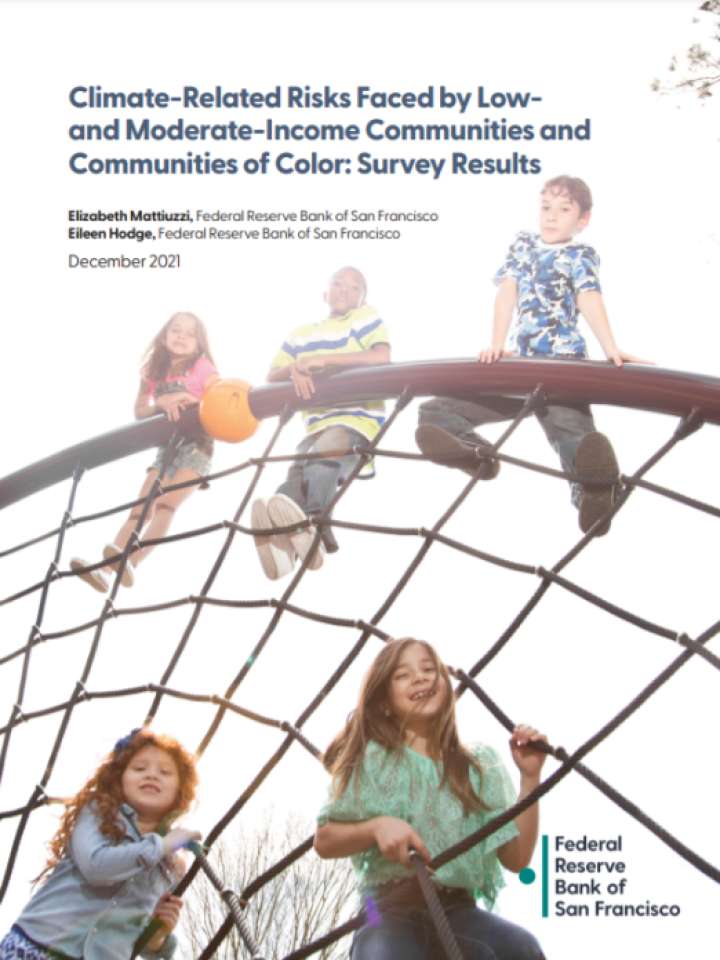Climate-related risks faced by low- and moderate-income communities and communities of color: Survey results
This survey aims to bring greater understanding to how climate shocks and stresses impact groups that have traditionally faced higher barriers to participating in the economy than the general population, including low-income communities, communities of color, and Tribal populations. The survey targeted professionals in the western United States from a broad range of sectors whose work on community development‒related issues impacts the personal and economic well-being of low-income communities and communities of color. Over 250 respondents shared their perceptions of how climate-related risks may be affecting the communities they serve and their organizations’ work.
The survey results indicate that most respondents already see climate-related risks impacting the communities they serve, but that communities and the organizations that serve them are not well prepared to face or address these risks. Although respondents report that the lingering pandemic and longer-term issues of racial and economic inequality are the most pressing issues facing families and communities, climate risks are compounding these issues. The availability of affordable housing in resilient areas is a particular barrier to reducing climate risk, as are issues of housing instability, accessibility to affordable transportation options, and health risks faced by outdoor workers. Climate-related risks vary by geography, and so do the potential ways to reduce these risks, particularly for low- and moderate-income communities and communities of color. More research is needed to understand specific climate-related risks and existing/potential efforts to address them, including through multisector collaboration, at the local and regional levels.
Explore further
